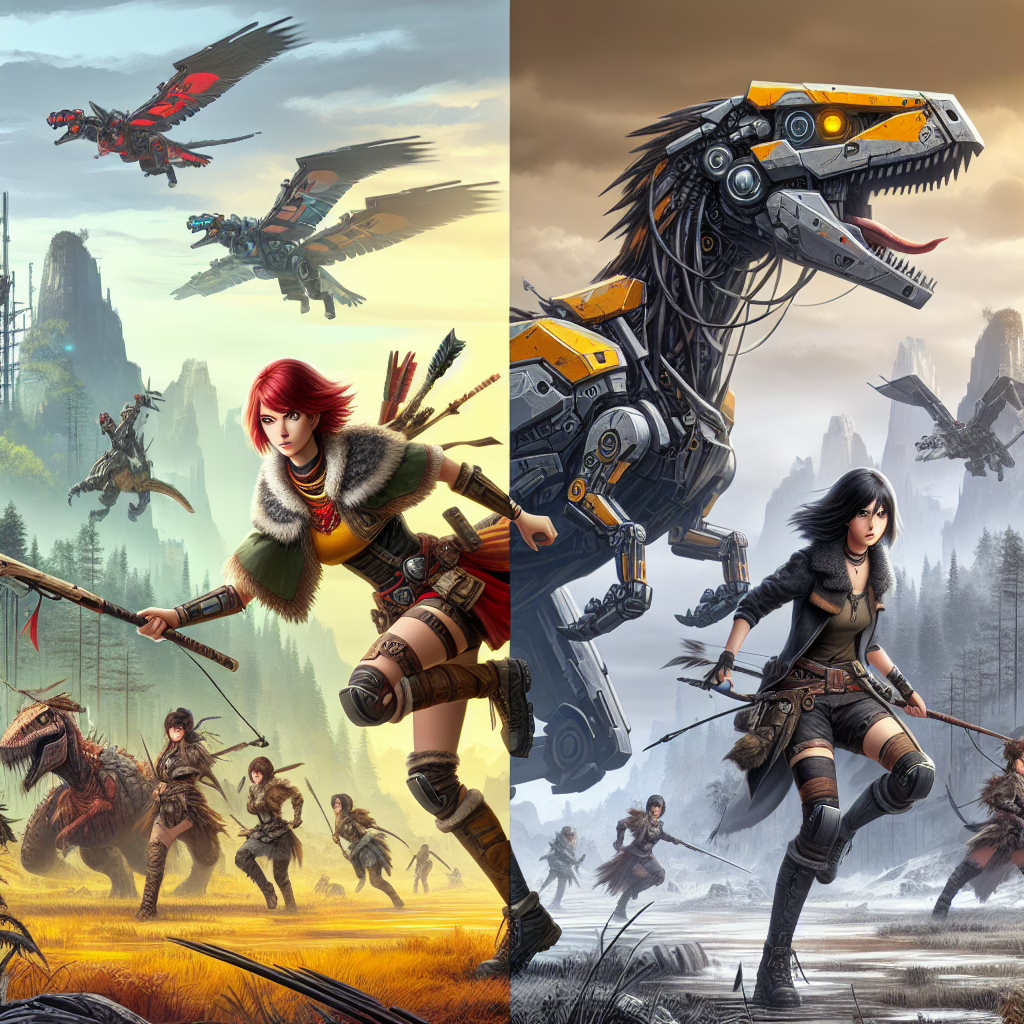In the ever-evolving world of gaming, where creativity flourishes like a well-watered plant, some companies are willing to risk it all for a slice of the action. Recently, Sony decided to take a stand against what they perceive as an infringement on their beloved franchise with a Horizon clone lawsuit. Meanwhile, Tencent finds itself tangled in this legal web, proving that when it comes to gaming, things can get as messy as a toddler with spaghetti.
What’s All the Fuss About?
So, what’s the deal with this Horizon clone lawsuit? In short, Sony has accused various developers backed by Tencent of creating games that bear an uncanny resemblance to their hit title, Horizon Zero Dawn. You know that feeling when you see someone wearing the same outfit as you at a party? That’s basically how Sony feels right now—unamused and ready to file a lawsuit.
In the realm of video games, originality is king. However, it appears that imitation isn’t just flattery; it’s also a potential ticket to court! Sony claims that these copycat games could confuse players and tarnish the reputation of their franchise. After all, who wants to be confused between a majestic robotic dinosaur and something that looks suspiciously similar but lacks the charm? Not us!
The Players Involved
On one side, we have Sony—an industry titan known for its innovative approaches and iconic titles. On the other side lurks Tencent, which has its fingers in many pies (and we’re talking about global gaming pies). With investments in numerous game studios worldwide, Tencent is like the cool kid at school who always has access to the latest trends. But even cool kids can find themselves in hot water!
The crux of the matter lies in how far one can push the envelope before it rips apart. Sony argues that certain games not only mimic gameplay mechanics but also share visual elements reminiscent of their own creations. While we appreciate a good homage, there’s a fine line between inspiration and outright copying.
The Legal Jargon: What Happens Next?
Now that we’ve set the stage, let’s dive into what happens next in this epic showdown. The legal proceedings surrounding this Horizon clone lawsuit could stretch longer than your average Netflix binge-watch session. Both parties will present their cases, complete with expert witnesses and possibly even dramatic reenactments of game scenes (okay, maybe not that last part).
Depending on how things unfold in courtrooms across cities (or perhaps even virtually), this could set precedents regarding copyright and intellectual property within the gaming industry. If nothing else, it’ll keep lawyers busy while gamers continue to enjoy their favorite titles—and maybe pick up a few new ones along the way!
The Impact on Gaming Culture
This lawsuit shines a light on an essential topic in gaming culture: originality versus imitation. While borrowing ideas isn’t new (hello, Mario clones!), there comes a point when developers must ask themselves if they’re pushing boundaries or merely repackaging someone else’s hard work.
- Originality fosters innovation.
- Imitation can lead to legal disputes.
- The balance between inspiration and copying is vital.
Moreover, this case serves as a reminder for aspiring game developers everywhere: while being inspired by great titles is fantastic, taking too much inspiration can lead you down a legal rabbit hole—one filled with lawyers instead of adorable bunny rabbits.
What Can We Learn?
If there’s one lesson to glean from this situation, it’s that innovation should always be at the forefront of game development. Companies should strive to create unique experiences rather than recycling existing ones. This not only benefits players but also cultivates a rich ecosystem where creativity thrives.
As gamers ourselves, we want fresh adventures filled with exciting narratives and groundbreaking mechanics. Who wouldn’t want to venture into new worlds rather than rehashing old ones? Let’s raise our controllers to originality and hope this lawsuit encourages more innovation instead of endless imitations!
In conclusion, while we might chuckle at the absurdity of it all—legal battles over video game aesthetics—it’s crucial for both players and developers to understand the importance of original content. The outcome remains uncertain, but one thing is for sure: this saga is far from over! Stay tuned as we keep an eye on how this unfolds.
We’d love to hear your thoughts! Do you think there’s too much copying in the gaming industry? Share your opinions in the comments below!
A huge thank you to The Verge for shedding light on this compelling story!

